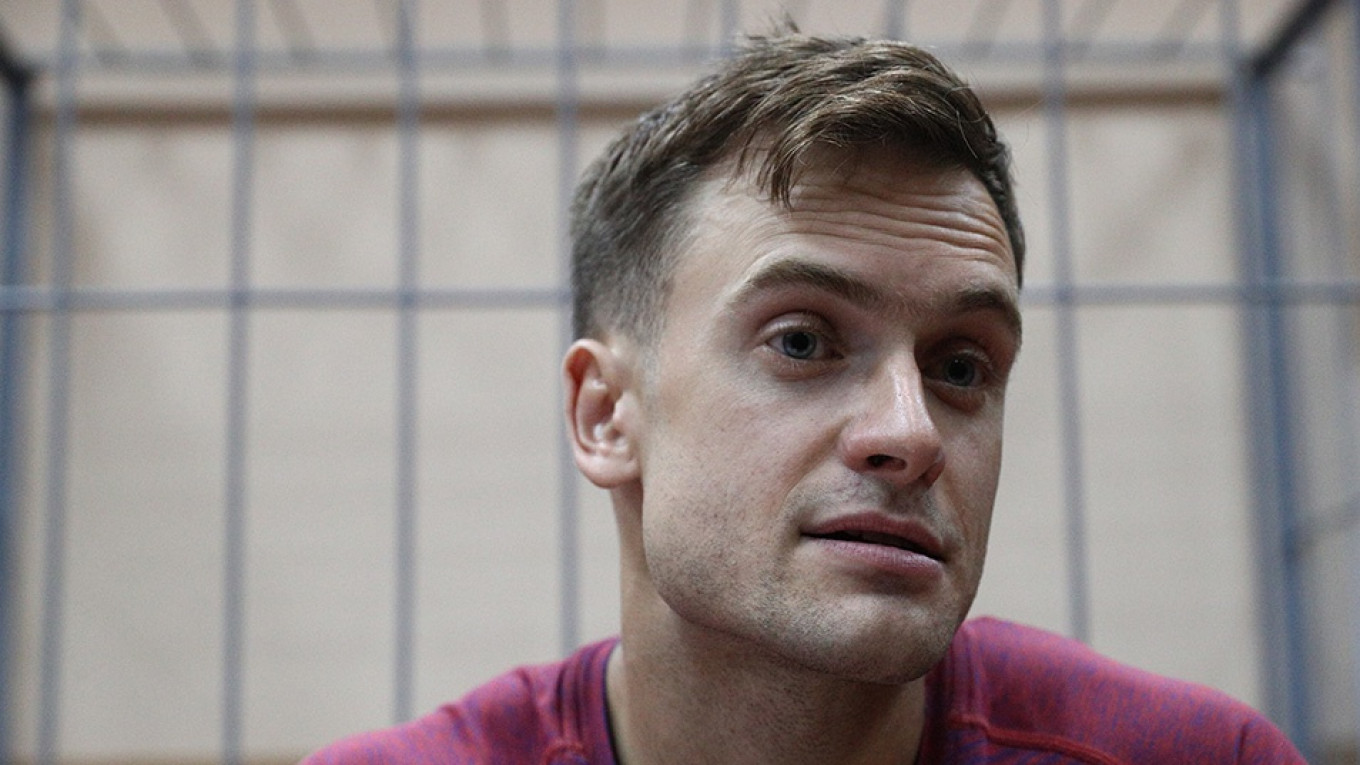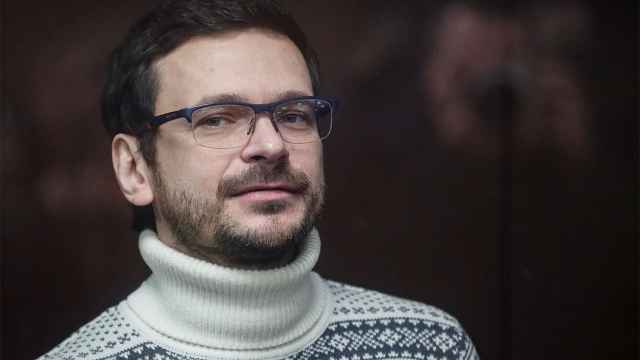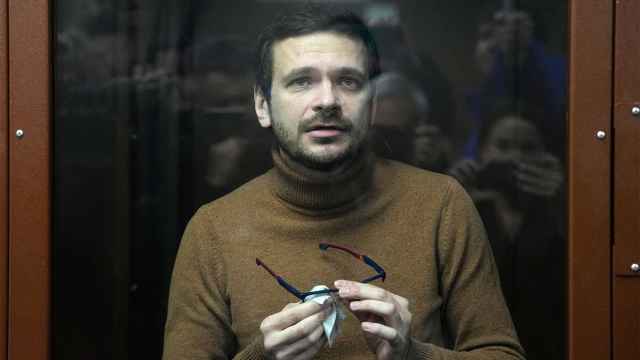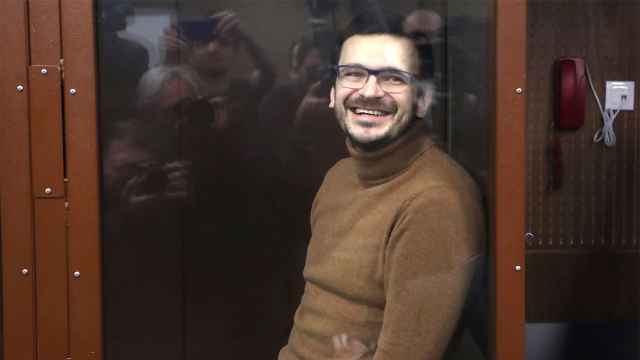The German government said on Monday it was concerned about the health of an anti-Kremlin activist who is in Berlin for treatment after a suspected poisoning.
Pyotr Verzilov, publisher of a Russian online news outlet and affiliated with the anti-Kremlin band Pussy Riot, lost his sight, hearing and ability to walk but is doing better since he arrived in Berlin for treatment on Saturday, two friends said on Sunday.
“We have followed the case, of course, and are concerned about the health of Mr Verzilov,” a German Foreign Ministry spokeswoman told a regular government news conference. “We hope he will be better soon and that he will recover fully.”
The Foreign Ministry spokeswoman and another spokeswoman for the Chancellery said their offices were informed that Verzilov was coming to Berlin but were not involved in organizing the trip.
The ministry spokeswoman declined to say whether Verzilov’s case was discussed at a meeting on Friday between German Foreign Minister Heiko Maas and Russian Foreign Minister Sergei Lavrov but she added that human rights are always a topic in such talks.
Verzilov arrived in Berlin from Moscow late on Saturday on a medical transport plane, the managing director of the Berlin-based Cinema for Peace human rights group, Jaka Bizilj, said on Sunday. The group paid for the transport, and Bizilj said that Russia had been “cooperative” in the matter.
Verzilov is publisher of Mediazona, a Russian online news outlet which focuses on human rights violations inside Russia’s penal system. He staged a brief pitch invasion during the soccer World Cup final in Moscow in July along with three women affiliated with Pussy Riot.
Pussy Riot came to prominence in 2012 when its members were jailed for staging a protest against Russian President Vladimir Putin in a Russian Orthodox cathedral in Moscow. The group has since become a symbol of anti-Kremlin protest action.
A Message from The Moscow Times:
Dear readers,
We are facing unprecedented challenges. Russia's Prosecutor General's Office has designated The Moscow Times as an "undesirable" organization, criminalizing our work and putting our staff at risk of prosecution. This follows our earlier unjust labeling as a "foreign agent."
These actions are direct attempts to silence independent journalism in Russia. The authorities claim our work "discredits the decisions of the Russian leadership." We see things differently: we strive to provide accurate, unbiased reporting on Russia.
We, the journalists of The Moscow Times, refuse to be silenced. But to continue our work, we need your help.
Your support, no matter how small, makes a world of difference. If you can, please support us monthly starting from just $2. It's quick to set up, and every contribution makes a significant impact.
By supporting The Moscow Times, you're defending open, independent journalism in the face of repression. Thank you for standing with us.
Remind me later.







